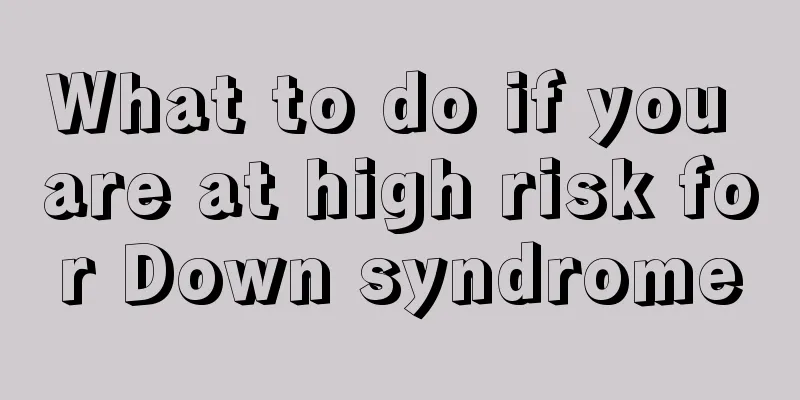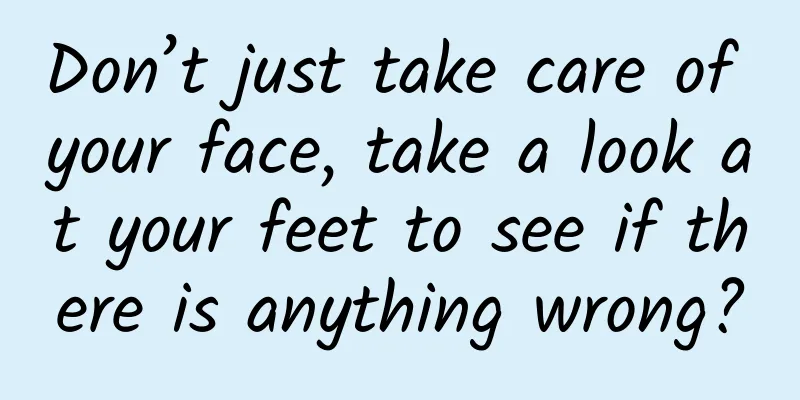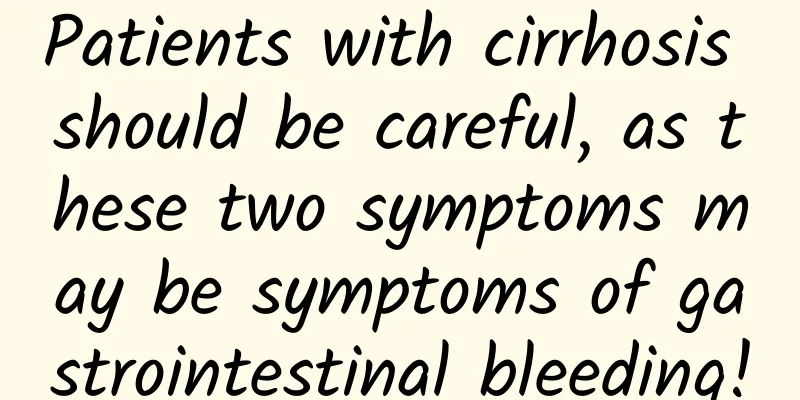What to do if you are at high risk for Down syndrome

|
Down syndrome screening is a widely used method for screening children with Down syndrome. Down syndrome screening is not actually the definitive test for diagnosing children. The success rate of Down syndrome screening is around 70%. If the probability of Down syndrome screening out a baby with Down syndrome is high, then you'd better do an amniocentesis test again, which can finally determine whether it is a baby with Down syndrome. This article will explain in detail what to do if high risk is detected. 1. What should I do if I have a high risk of Down syndrome? The incidence of Down syndrome is not directly related to race, economic status, etc. It is estimated that one in every 660 newborns suffers from Down syndrome, making it the most common chromosomal abnormality. Giving birth at an older age increases the risk of the baby having Down syndrome. The incidence rate is 1/1250 among those aged 20 to 24, 1/400 at 35, 1/106 at 40, 1/30 at 45, and 1/11 at 49. The reason is that as the age of pregnant women increases, the phenomenon of sex chromosome non-disjunction will increase during the production of oocytes. However, on the other hand, about 80% of babies with the syndrome are born to pregnant women under 35 years old. This is related to the high rate of pregnancy among women under 35 years old. In addition, there are also cases where the unnecessary sex chromosomes come from the father's side, and the ratio of paternal factors to maternal factors is 1:4. Families with a potential high risk of illness are generally advised to undergo cell biology consultation and genetic testing such as "amniotic fluid diagnosis for pregnant women". When the Down syndrome screening data shows "high risk", expectant mothers should not be overly anxious. This means that the probability of the fetus suffering from Down syndrome is higher than 1/270, which does not necessarily mean that the fetus is a Down syndrome baby. When a high-risk situation occurs, the next thing the pregnant mother needs to do is to use amniocentesis to determine whether the baby is indeed Down syndrome. The most common technology for prenatal examination at present is amniocentesis, that is, under the guidance of B-ultrasound, a needle is inserted into the amniotic fluid of the pregnant woman through the abdomen to extract the amniotic fluid and perform sex chromosome analysis on the fetal cells. Amniocentesis is suitable for pregnant women between 16 and 20 weeks of gestation. When Down syndrome screening shows a high risk and amniocentesis confirms that the fetus is indeed a Down syndrome baby, the best solution at this stage is to terminate the pregnancy. |
<<: Mid-term Down syndrome screening
>>: Symptoms of Down's syndrome baby
Recommend
Does anal itching during pregnancy affect the fetus?
Pregnancy is a stage that is both a blessing and ...
What is the difference between lychee and Feizixiao? The efficacy and function of Feizixiao
Feizixiao, a variety of litchi, is also known as ...
What does irregular menstruation mean?
I believe that women are not unfamiliar with irre...
Does leucorrhea mean ovulation?
The problem of leucorrhea in women has always bee...
What to pay attention to when you have stomach pain during pregnancy
After becoming pregnant, a woman's immunity n...
eMarketer: Twitter has more than 100 million users in Asia
Twitter's user growth has stagnated for years...
What flavor of mousse cake is delicious? Mousse cake recipe
Mousse cake is a pastry made with mousse powder a...
How long does it take for the cervix to open before giving birth?
After a girl becomes pregnant, she should learn s...
What does HPV42 positive mean?
What does HPV42 positive mean? HPV40 is a low-ris...
What to pay attention to after breast puncture
Physical examination is an important way to under...
Does high uric acid in women mean that they have an acidic constitution?
Many people do not have a clear concept of consti...
What are the tips for losing weight during breastfeeding?
Losing weight is very common nowadays, and there ...
Can drinking lotus leaf tea regularly help you lose weight? What happens if you drink too much lotus leaf tea?
Lotus leaf tea is a common drink in life. It is l...
Causes of finger joint pain during pregnancy
Pregnant women often experience various adverse r...









